Republicans push to extend new voter ID law next year; Democrats seek repeal
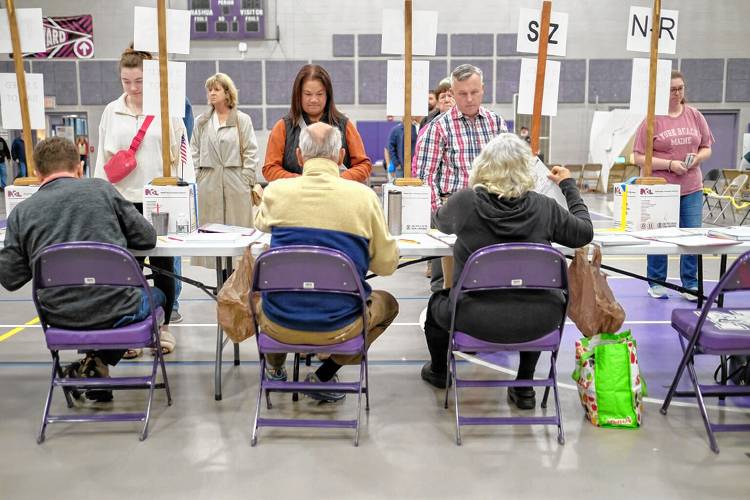
Nashua voters check in on Election Day, Nov. 5, 2024. WILL STEINFELD—New Hampshire Bulletin
| Published: 11-25-2024 10:49 AM |
The new law that will require hard proof of voter ID and citizenship to vote in New Hampshire just barely took effect – six days after the Nov. 5 general election.
But already, Republican and Democratic lawmakers are seeking to change it this legislative session.
Republicans are hoping to expand the law, known as House Bill 1569. It requires all voters to present ID at the polls or they won’t be allowed to vote. And it requires that all new voters must present hard copies to prove their U.S. citizenship through a birth certificate, passport, or other documents.
Rep. Bob Lynn, a Windham Republican and the architect of the existing law, is introducing legislation to extend the documentary requirements to absentee voters.
Lynn is also putting forward a bill meant to help people who can’t afford to pay to obtain a copy of their birth certificate from another state – and allowing the Secretary of State’s Office to use databases to attempt to confirm the person’s citizenship.
Democrats, meanwhile, are introducing a bill to repeal the law. They argue the new requirements will impose excessive burdens to vote and will disenfranchise people who don’t have immediate access to identification and citizenship documents.
And looming over all legislation is a pair of lawsuits in federal court intended to overturn the law.
After Gov. Chris Sununu delayed signing it so it would not affect the Nov. 5 election, the law will first take effect in spring 2025 for town meeting season.
Article continues after...
Yesterday's Most Read Articles
 By all appearances, Canadians are leery of coming to NH
By all appearances, Canadians are leery of coming to NH
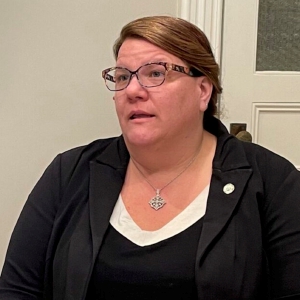 Helen Hanks resigns as Department of Corrections commissioner
Helen Hanks resigns as Department of Corrections commissioner
 “A dream come true” – Family opens housing for adults with disabilities in Concord
“A dream come true” – Family opens housing for adults with disabilities in Concord
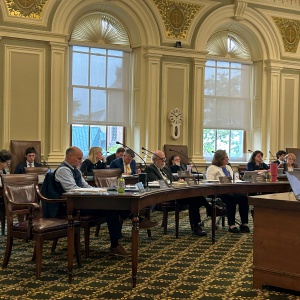 N.H. Senate passes bathroom bill, sending it to Ayotte’s desk
N.H. Senate passes bathroom bill, sending it to Ayotte’s desk
 Catherine Masterson named next superintendent of Merrimack Valley and Andover starting in 2026
Catherine Masterson named next superintendent of Merrimack Valley and Andover starting in 2026
 ‘You made a difference’ — Belmont baseball seniors honor their educators
‘You made a difference’ — Belmont baseball seniors honor their educators
Lynn says one of his bills is intended to make it easier for people to comply with the existing law.
“It’s not – despite the claims of some of the opponents of this – that the design is to suppress voting,” he said in an interview. “That’s the furthest thing we want to do. We want to try to make it as accessible as possible.”
The bill requires a town clerk or town election official to reach out to the Secretary of State’s Office if a resident is trying to register to vote but does not have adequate documentation, according to a draft of the legislation provided to the Bulletin by Lynn.
At that point, “it shall be the responsibility of the secretary of state to make reasonable efforts to determine whether the person is a United States citizen,” the bill states. The office may do that by accessing “relevant and available in-state and out-of-state and federal databases that contain that information,” the bill continues.
The bill does not specify which databases the state could use.
Lynn pointed to a database maintained by U.S. Citizenship and Immigration Services known as SAVE. It is designed to allow federal, state, and local agencies to verify immigration status and citizenship for applicants seeking licenses and benefits, according to its website.
In a statement Friday, a spokeswoman for the Secretary of State’s Office, Anna Sventek, said the office would likely need to rely on multiple databases if the bill passes.
“The Secretary of State’s Office is aware that there is not one single database that can be used to confirm the citizenship of every citizen,” she said. “We are aware of some Federal agencies that are able to confirm some information; if the bill passes, we will do a thorough review of available resources to help us verify citizenship.”
The idea of directing the Secretary of State’s Office to use databases to help confirm voters’ citizenship is not new; last spring, Sen. James Gray proposed passing a version of HB 1569 that included that language. The bill, HB 1370, did not pass.
At the time, Gray said he had discussed a number of potential databases with the Secretary of State’s Office – including the state’s own records within the Division of Motor Vehicles – and believed the effort would resolve most voters’ challenges. But Secretary of State David Scanlan said separately that while a hotline “could be done,” it could also result in challenges.
Lynn’s bill does not require the Secretary of State’s Office to help in every case. If the request is made on Election Day, for instance, “neither local officials nor the Secretary of State shall be required to expend such time or effort on citizenship verification as would unreasonably interfere with their other Election Day duties,” the bill states.
The second part of the bill would give financial aid to anyone seeking to obtain their birth certificate or other citizenship document. That person would need to sign an affidavit at their town offices swearing that they cannot afford to pay the fees; the town or city would then pay a voucher to cover the expense. The town or city would be reimbursed by the Secretary of State’s Office.
The new bill comes against the backdrop of the lawsuits that argue the new documentation requirements will disenfranchise people who can’t afford to get their citizenship documents to register to vote – or simply do not have enough time before Election Day to do so. New Hampshire’s law is the only of its kind in the country to require hard proof of citizenship to register to vote in federal elections.
Lynn says the existing law, HB 1569, is constitutional and will stand up to judicial scrutiny on its own. But passage of the bill that directs database verification and provides financial aid may further weaken the plaintiffs’ case against the state, Lynn argued.
“It’s not a response to the lawsuit,” he said. “But you know, to the extent that we can do things to make it even more accessible for people who claim to be indigent or who … for some reason or other don’t have documentation of citizenship, that we can provide other avenues for them to satisfy that requirement, I’m all in favor of doing it.”
Lynn’s second bill next year would extend the documentary requirements to absentee voters, requiring those voters to either cast their absentee ballots in person with their IDs in hand or include photocopies of their ID. New voters to the state would need to include photocopies of all documents necessary for registration, including citizenship.
Democrats are hoping to move the state in a different direction. Rep. Connie Lane, of Concord, has submitted a bill to repeal HB 1569 and allow voters to continue using affidavits to register to vote if they do not have their physical proof of citizenship.
But Republicans have broadened their control over the House and Senate, with a 221-178 advantage over Democrats in the House, so Lane does not expect the repeal to succeed.
Democrats are bringing back other longstanding voting law efforts. One is a bill to pass “no excuse” absentee voting, which would allow New Hampshire residents to vote early without meeting the current list of reasons. Those include being out of town on Election Day, having a physical disability or illness, having a religious commitment, having an employment commitment, being a caregiver for an adult or child, being protected under a domestic violence order, and others.
Republicans have opposed no-excuse absentee voting in the past, arguing it could lead to fraud and allow people to coerce others to vote a certain way.
“I don’t expect that it’s going to go really far, but I think we want to keep it on the radar,” Lane said. “Because it is something – at least for my constituents and others – it seems to be a popular thing.”
Lane said Democrats would be pushing a bill to make it easier for overseas and military people to vote, by allowing them to vote online.
And she said she would also try to work with Republicans on legislation allowing online voting registration. In 2023 and 2024, lawmakers have come close to passing such bills, only for negotiations to fall apart at the last moment in committee of conference sessions.
“It’s not easy to register to vote in New Hampshire, and the Republicans don’t like same day (registration) and they’ve made it increasingly difficult to register on the same day,” she said. “So I’m hoping we can come into whatever century we’re in now and help people do it online.”







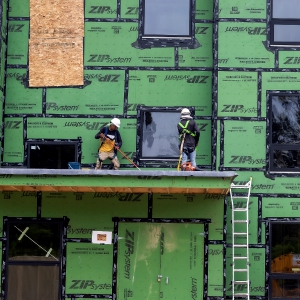 Concord became a Housing Champion. Now, state lawmakers could eliminate the funding.
Concord became a Housing Champion. Now, state lawmakers could eliminate the funding.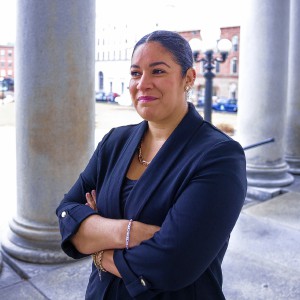 ‘A wild accusation’: House votes to nix Child Advocate after Rep. suggests legislative interference
‘A wild accusation’: House votes to nix Child Advocate after Rep. suggests legislative interference  Sununu decides he won’t run for Senate despite praise from Trump
Sununu decides he won’t run for Senate despite praise from Trump Town elections offer preview of citizenship voting rules being considered nationwide
Town elections offer preview of citizenship voting rules being considered nationwide
